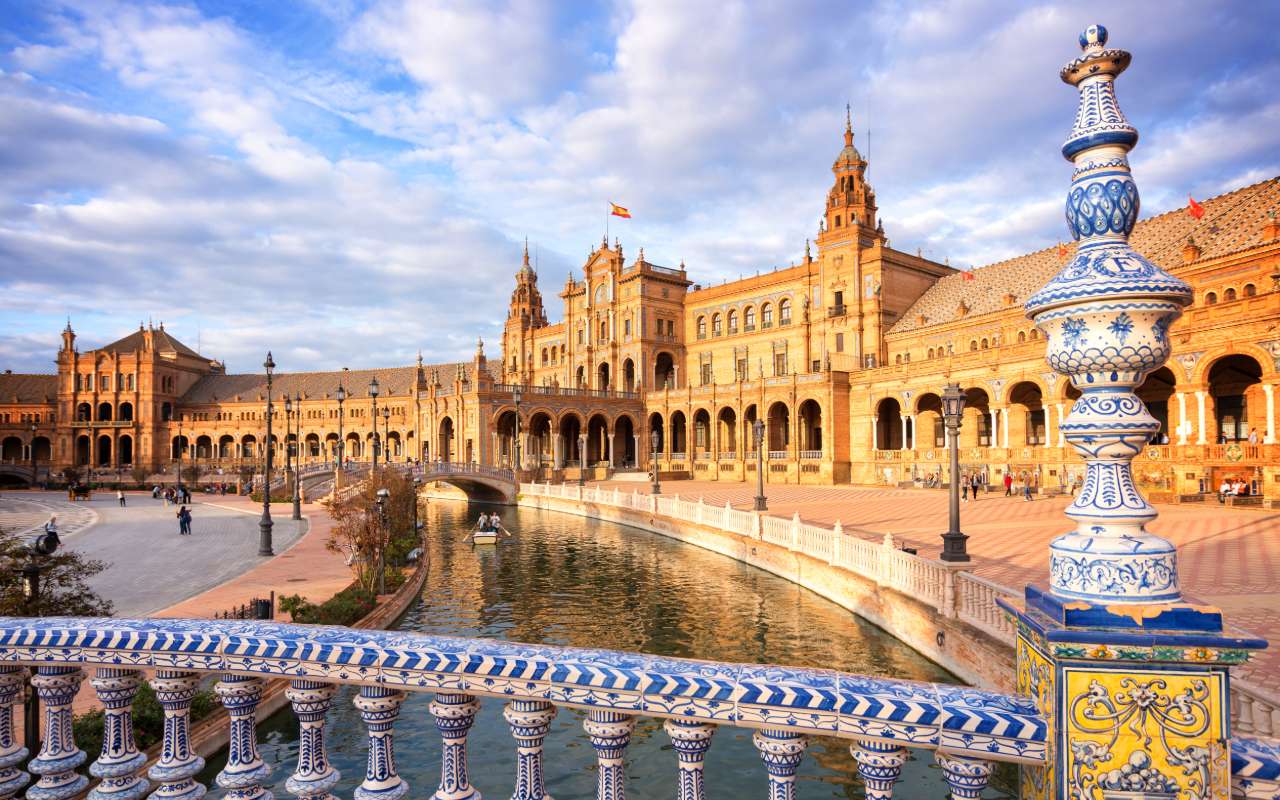
Ever wondered about the Iberian Peninsula and its treasure trove of history, culture, and geography? Well, you're in for a treat! Nestling at the southwestern tip of Europe, this chunk of land is more than just Spain and Portugal. It's a melting pot of civilizations, languages, and landscapes. From its sun-drenched beaches to its snow-capped mountains, the Iberian Peninsula is a feast for the senses. But wait, there's more! Did you know that it's also home to some of the oldest historical sites in Europe? Or that it boasts a diverse range of climates? Yes, the Iberian Peninsula is a fascinating place, brimming with facts that will surprise and delight you. Let's dive into some of the most intriguing and lesser-known tidbits about this remarkable corner of the world.
Key Takeaways:
- The Iberian Peninsula, located in southwestern Europe, is a diverse region with rich cultural, historical, and geographical significance, offering stunning landmarks, natural wonders, and culinary delights.
- From the Alhambra in Spain to the Ria Formosa in Portugal, the Iberian Peninsula is a treasure trove of unique attractions, festivals, and traditions, making it a must-visit destination for travelers seeking diverse experiences.
Where Is the Iberian Peninsula Located?
Nestled in the southwestern corner of Europe, the Iberian Peninsula is a diverse landmass home to Spain, Portugal, Andorra, Gibraltar, and a small part of France. This region is bordered by the Atlantic Ocean to the west and north, the Mediterranean Sea to the east, and the Strait of Gibraltar to the south, which separates it from Africa.
What Makes the Iberian Peninsula Unique?
-
Cultural Diversity: The Iberian Peninsula is a melting pot of cultures, languages, and traditions. Here, you'll find Castilian Spanish, Catalan, Galician, Basque, and Portuguese, among other languages, each contributing to the rich cultural tapestry of the region.
-
Historical Significance: From the ancient Romans and Moors to the Age of Exploration, this region has played a pivotal role in European and world history. Its cities are dotted with UNESCO World Heritage Sites, ancient fortresses, and architectural marvels.
-
Geographical Diversity: The peninsula offers a range of landscapes, from the snowy peaks of the Pyrenees to the sun-soaked beaches of the Algarve and Costa del Sol. Its diverse geography supports a variety of climates and ecosystems.
Famous Landmarks of the Iberian Peninsula
-
Alhambra: A stunning example of Moorish architecture, this fortress-palace in Granada, Spain, is renowned for its intricate Islamic art, lush gardens, and panoramic views.
-
Sagrada Familia: Antoni Gaudí's unfinished masterpiece in Barcelona, Spain, is a UNESCO World Heritage Site and one of the most visited monuments in the country.
-
Belem Tower: Located in Lisbon, Portugal, this fortified tower is a symbol of the Age of Discoveries and a testament to the country's maritime heritage.
Iberian Peninsula's Natural Wonders
-
Doñana National Park: Spanning parts of Andalusia, this biosphere reserve is a haven for migratory birds and houses a variety of ecosystems, from marshes and dunes to lagoons.
-
Picos de Europa: These dramatic limestone peaks offer some of Spain's most breathtaking scenery and are a paradise for hikers, climbers, and nature lovers.
-
Ria Formosa: This unique coastal lagoon in Portugal is known for its beautiful islands, diverse wildlife, and picturesque landscapes.
Culinary Delights of the Iberian Peninsula
-
Tapas: These small, savory dishes are a staple of Spanish cuisine, perfect for sharing and trying a variety of local flavors.
-
Port Wine: Originating from the Douro Valley in Portugal, this fortified wine is enjoyed worldwide and is integral to Portuguese culinary traditions.
-
Paella: Often considered Spain's national dish, this flavorful rice dish is typically cooked with seafood, chicken, rabbit, and a variety of vegetables.
Festivals and Traditions
-
La Tomatina: Held annually in Buñol, Spain, participants in this unique festival throw tomatoes at each other in a spirited celebration that attracts visitors from around the globe.
-
Fado Music: A soulful genre that originated in Portugal, Fado is characterized by its melancholic tunes and lyrics, often reflecting the life of the poor or the sea.
-
Running of the Bulls: This controversial yet famous event takes place in Pamplona, Spain, where bulls are let loose on the city's streets, followed by daredevil runners.
A Final Look at Iberia's Wonders
We've journeyed through the rich tapestry of the Iberian Peninsula, uncovering fascinating facts that paint a vivid picture of this unique region. From its diverse landscapes and climates to its profound historical significance and cultural contributions, Iberia stands out as a remarkable corner of our world. Its influence on global exploration, language, and cuisine underscores the peninsula's enduring legacy. As we reflect on these insights, it's clear that Iberia's charm lies not just in its past but in its ongoing story—a blend of tradition and modernity. Whether you're a history buff, a nature lover, or a culinary enthusiast, the Iberian Peninsula offers a treasure trove of discoveries waiting to be explored. So, next time you're plotting an adventure or diving into history books, remember the wonders of Iberia and the endless stories it holds.
Frequently Asked Questions
Was this page helpful?
Our commitment to delivering trustworthy and engaging content is at the heart of what we do. Each fact on our site is contributed by real users like you, bringing a wealth of diverse insights and information. To ensure the highest standards of accuracy and reliability, our dedicated editors meticulously review each submission. This process guarantees that the facts we share are not only fascinating but also credible. Trust in our commitment to quality and authenticity as you explore and learn with us.


